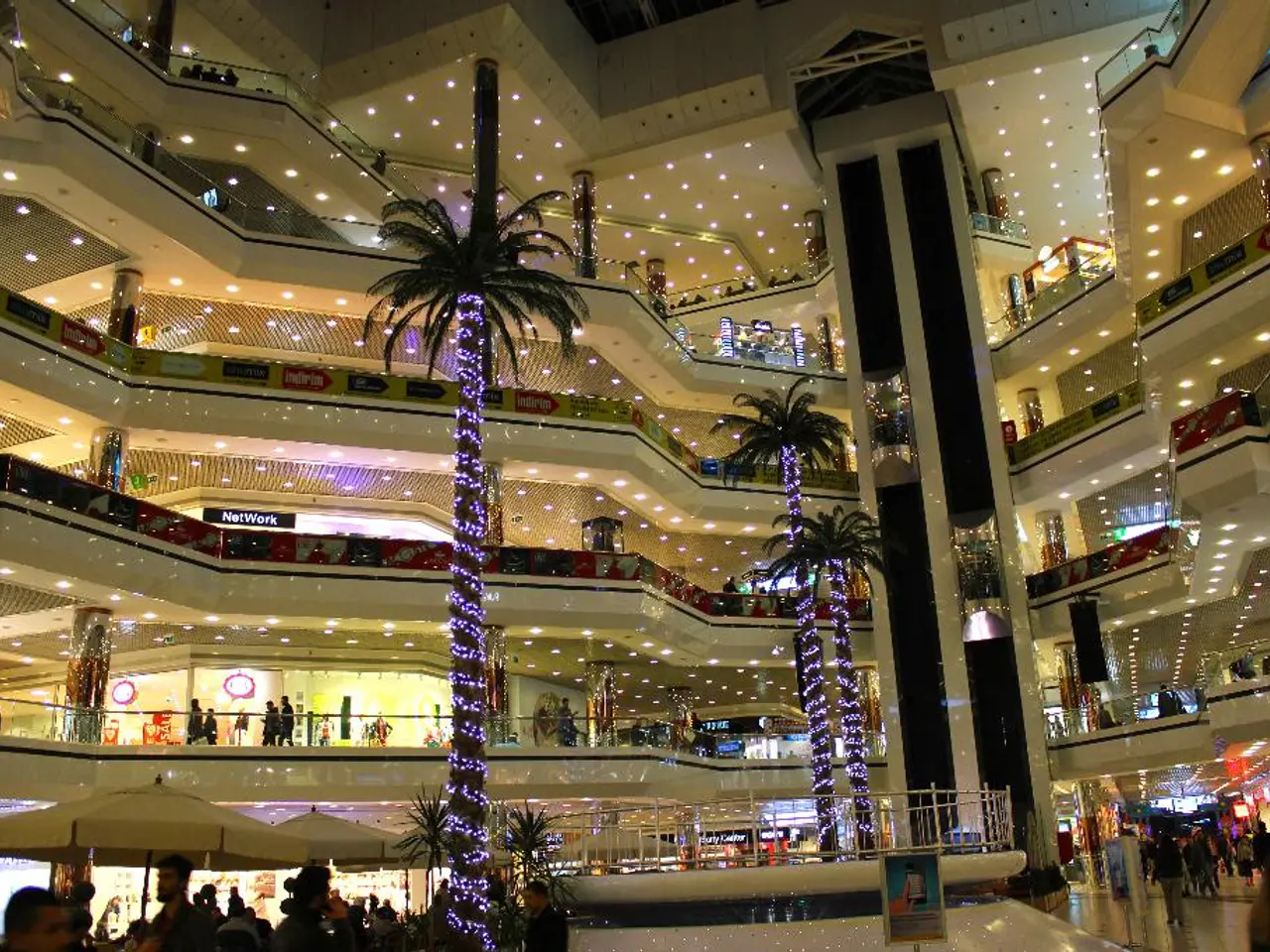Bankruptcy strikes a notorious cult organization.
In the heart of Europe, Germany's retail sector is grappling with a wave of insolvencies that has been escalating throughout 2025. Two notable brands, Closed GmbH and Pepco's German branch, have recently joined the ranks of struggling retailers.
Closed GmbH, a Hamburg-based fashion brand, filed for insolvency on August 5, 2025. Despite having a fundamentally profitable operational structure with good sales in wholesale, online, and brick-and-mortar formats, the company's excessive debt and financing costs have taken a toll. The company continues to operate its 26 stores in Germany, aiming for a rapid investor-led turnaround. The insolvency administrator is optimistic about retaining the brand as a Hamburg-based company, and initial discussions with potential investors have begun [1].
Pepco, a Polish fashion discounter, filed for insolvency for its German branch in late July 2025. Despite positive overall European trends, the company has struggled with losses since entering the German market in 2022. All 64 Pepco stores in Germany will remain open during the restructuring, with management aiming to reboot the branch and restore profitability. Christian Stoffler has been appointed as the Chief Restructuring Officer to oversee this process, and the parent company remains supportive with pledged financing [2][3].
These insolvency filings are a stark reminder of the difficulties faced by many businesses in Germany. The German Retail Association (HDE) predicts that around 4,500 stationary stores in Germany will close by 2025. The number of company insolvencies in Germany continues to rise, with 1,588 cases reported in July 2025 (according to the Leibniz Institute for Economic Research Halle) [4][5].
Employees of both Closed GmbH and Pepco's German branch are now facing uncertainty, a sentiment shared by many workers in the retail sector. Some users on social media express regret for the employees facing an uncertain future due to the insolvencies.
For customers, the future of these retailers is also uncertain. Claire's, a well-known retailer that offers jewelry and accessories, and also provides ear piercing services, has multiple locations in Germany, including Dortmund, Frankfurt am Main, Kassel, Koblenz, Nuremberg, and Potsdam. The future of Claire's stores in Germany is uncertain due to the company's current financial situation, and customers who frequent Claire's will have to wait and see how the situation develops regarding the stores' future.
The insolvency of these retailers is mainly due to decreased demand from customers and growing competition. The retail sector in Germany is facing a challenging business environment, with many companies struggling to stay afloat. The insolvency proceedings are a reminder of these difficulties and shatter hopes for a quick economic recovery, putting pressure on banks and creditors alike.
| Retailer | Filing Date | Stores in Germany | Status of Stores | Restructuring Plan | |---------------------|--------------|-------------------|---------------------|---------------------------------------------| | Closed GmbH | Aug 5, 2025 | 26 | Operations ongoing | Seeking investors, aiming to keep brand alive | | Pepco (German branch)| Jul 24-25, 2025 | 64 | Stores remain open | Undergoing restructuring with new leadership |
No immediate widespread store closures have been reported for either company; instead, both pursue restructuring efforts to maintain operations and viability [1][2][3]. These retailer cases are part of a larger wave of insolvencies impacting the German retail sector in 2025 [4][5].
Other businesses in the retail sector may also face similar challenges, as finance and debt management remain critical factors impacting their profitability. The banking industry, in particular, may need to provide more flexible financing options to aid struggling retailers.
Moreover, the finance sector should collaborate with the retail industry to devise innovative strategies that address the decreased customer demand and growing competition, potentially through digital transformation or unique retail experiences.




